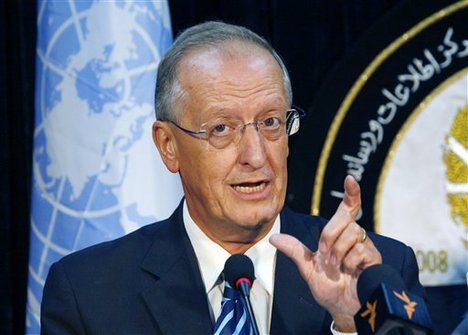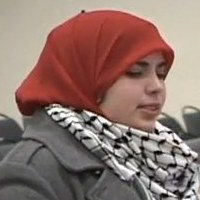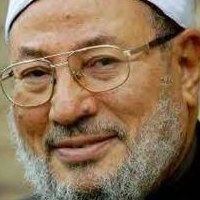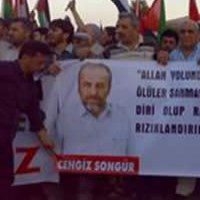![]()
Fri, Dec 24, 2010 | WikiLeaks | Edited by Crethi Plethi
WikiLeaks: Taliban Stockpiling Drug to Manipulate Street Price in the West
Head of UN office on drugs and crime Antonio Maria Costa warns of new sophisticated market tactics in Afghanistan: Afghan gangs and Taliban stockpiling drug to manipulate street price in the west.
Read related article here.
Friday, 18 September 2009, 16:51
C O N F I D E N T I A L SECTION 01 OF 04 USNATO 000397
SIPDIS
EO 12958 DECL: 09/18/2019
TAGS SNAR, MOPS, NATO, PREL, AF
SUBJECT: THE 2009 AFGHANISTAN OPIUM SURVEY: UNODC COSTA
BRIEFS NATO AND PARTNER NATIONS
Classified By: A/Political Advisor A.”Hoot” Baez. Reasons: 1.4 (b) AND (d).1.(C/REL ISAF) BEGIN SUMMARY: On September 18 the Executive Director of the UN Office of Drugs and Crime (UNODC), Antonio Maria Costa, briefed at NATO Headquarters the results of the 2009 Afghanistan Opium Survey. Opium cultivation trends reported were positive overall and showcased a major decline in opium cultivation in Afghanistan by 22 percent in 2009, the lowest in 15 years. Costa described Afghanistan as having a southern opium problem not an Afghanistan opium problem. The report found that nearly 99 percent of all opium production took place in the south. All other provinces in Afghanistan produced only 1 percent of the country’s total opium in 2009. The UK and U.S. support to Helmand Governor Mangal’s three-pronged “food zone” project was illustrated as a successful initiative promoting licit farming in the South. Costa said the World Food Program should buy wheat at the higher price in Afghanistan instead of Pakistan, as it would have a greater positive impact on the Afghan economy. Eradication mechanisms were reported to have minimal affects and accounted for only 3 percent to 4 percent in cutting opium cultivation. END SUMMARY
2.(C/REL ISAF) In a September 18 briefing at NATO Headquarters, UNODC’s Executive Director Costa said development was the driving factor to reduce opium cultivation. When pressed by Italy, the Netherlands, and Russia on what more ISAF could do to aid Afghanistan in trying to control the drug problem, Costa responded that development was key. Costa said that ISAF counternarcotics operations did play a role and were a reinforcing trend, but not as strong as the severity of the insurgency and it coercing effects on farmers to grow illicit crops. The economic situation was reported as the most important driving factor when farmers considered if they would grow poppy.
Poverty Not the Issue
———————
3. (C/REL ISAF) The Netherlands asked if poverty was the driving factor for farmers to cultivate opium. Costa said that even though Afghanistan was among the most impoverished countries in the world, poverty was not the main factor. Costa said abandoning opium cultivation does not produce a humanitarian crisis. He said market forces caused a shift in opium prices and could easily influence farmers to grow licit crops if high market prices and revenue could be gained from them.
Law Enforcement and Military Strikes Having An Impact
——————————————— ——–
4. (C/REL ISAF) Costa said that the most powerful motivating factors driving farmers away from opium cultivation were effective law enforcement, NATO strikes, and measures by the Afghan government to destroy crops. He said farmers acknowledged that opium was more profitable than licit crops. On the other hand, he said farmers also feared law enforcement retaliation for growing it and, thus, actually viewed it as less profitable overall. Costa said this was a
USNATO 00000397 002 OF 004
new report finding and said law enforcement retaliation was more of a driving factor not to grow opium than eradication. High cultivation trends were linked to the insurgency presence, particularly in areas with an absence of Afghan governance structures and security stability. In Costa’s view, counternarcotics operations by NATO and Afghan forces alone or jointly was making an impact and causing farmers to think twice.
Opium Stocks Remain High
————————
5. (C/REL ISAF) Costa said that Afghanistan has 12,400 tons of opium stocks because it produces more than the world consumes. Costa believes the insurgency is withholding these stocks from the market and treating them like “savings accounts.” He said the stocks pose a serious threat as it could be used to finance the insurgency. Costa encouraged intelligence organizations to keep focus on the storage and movement of Afghanistan’s opium stocks.
Buy Wheat In Afghanistan, not Pakistan
————————————–
6.(C/REL ISAF) Costa encouraged the World Food Program (WFP) to buy wheat in Afghanistan instead of Pakistan. He said the WFP had a policy to buy food for all humanitarian donations at the lowest price and understood that the total cost to buy wheat in Pakistan and transport it to Afghanistan was 14 percent lower than the cost of only buying wheat in Afghanistan. However, Costa said that if the WFP bought the wheat at the higher price in Afghanistan it would have a greater positive impact on the Afghan economy. He said if the WFP bought the wheat in Afghan markets, it would increase the demand for wheat in the Afghan economy, higher demand meant higher prices, and would, therefore, raise wheat’s market price and revenue for Afghan farmers. Costa acknowledged that the quality of wheat in Afghanistan was low as a result of disease, high humidity, and pest contamination in low-quality storage facilities, but encouraged the World Bank to actively engage in increasing Afghanistan’s wheat quality through its rural development initiatives.
Infrastructure Important; “Food Zones” Ground Breaking
——————————————— ———
7. (C/REL ISAF) Costa said Afghanistan also needs better economic and agricultural infrastructure. In Costa’s view, counternarcotics was not only about seizing opium supply and using kinetic force to protect the population from the insurgency’s coercions, but also building better transport systems and storage facilities for farmers to access markets with licit crops. Costa praised the UK and U.S. financial and technical support of Helmand’s “food zone” initiative, touting it as “ground breaking.” Helmand province experienced a 33 percent decline in opium cultivation in 2009 according to the UNODC report. Costa said that good governance and a committed provincial governor who didn’t threaten farmers to not grow poppy, but, instead, convinced them through anti-poppy awareness campaigns, wheat seed distribution, and effective law enforcement activities, with
USNATO 00000397 003 OF 004
eradication, show-cased the initiative as successful. He encouraged spreading the initiative in other provinces and said it would help other provinces remain poppy free.
Development Key, Not Eradication
——————————–
8.(C/REL ISAF) Costa did highlight Afghan National Security Force and International Assistance Force operations as having a destabilizing effect on the narco-insurgency link but said development was the key factor to overcome cultivation. Eradication mechanisms were reported to have minimal affects and accounted for only 3 percent to 4 percent in cutting opium cultivation.
Costa Positive On Triangle Initiative
————————————-
9. (C/REL ISAF) In response to the UK’s question on how the Iran, Afghanistan, and Pakistan’s triangular initiative complimented counternarcotics efforts, Costa spoke very favorably about the initiative. He cited the triangular initiative’s Counternarcotics Cell in Tehran as being composed of Afghan, Pakistani, and Iranian officials with six total locations — three of which have been set up in the past few months. He said the Cell was heavily supported by Canada. He commented that the Cell was more symbolic than operationally effective at this point, displaying a good working relationship on intelligence sharing between the three countries historically known to be at odds.
Drug-Taliban Links
——————
10.(C/REL ISAF) Costa responded to Sweden’s question on which parts of the insurgency are gaining the most from narcotics profits by pointing to operations in southern Afghanistan. He said that there was evidence of emerging narco-cartels along Afghanistan’s southern border that are linked to the Taliban. Costa said that the UNODC interviews those who have been recently released by the Taliban for an inside view into insurgency activities. He said many former Taliban detainees said that their sleeping bags were often bags of opium. Costa said the interviews yielded information that many narcotics transactions and transport activities occurred during the night. Costa said there was a grey area between those apart of the insurgency for the ideological aspects and those involved because of the financial gains of the black market narcotics industry. In the north, Costa said there was evidence within the last 12 to 18 months of new narcotics networks by the insurgency. Costa also mentioned that Afghanistan had a political drug cartel, but did not go into details.
Tajikistan Can Do More
———————-
11. (C/REL ISAF) He also cited far too little evidence of opium seizures in Tajikistan coming from Afghanistan. Costa attributed the ineffectiveness of Tajikistan’s police forces to interdict transiting opium supplies to low police
USNATO 00000397 004 OF 004
salaries, a lack of motivation, and adequate equipment.
What More Can Be Done
———————
12. (C/REL ISAF) When the Netherlands, Russia, and Italy asked what more ISAF could do to stem opium cultivation, Costa responded that in addition to development the regional neighbors should get more involved. Russia said the UN had the key role in counternarcotics efforts in Afghanistan and encouraged NATO, Iran, Afghanistan and Pakistan to also work with the Shanghai Cooperation Organization. Costa also said that the international community had to fight drug addiction and H.I.V infection and other health related issues as a result of Afghanistan’s drug trade. Costa said there should be a focus on transiting routes along the silk road and through central Asia to Russia. He also said a greater number of NATO strikes on high value targets would be helpful in the counternarcotics campaign. Costa said there were 380 UNODC observers in Afghanistan who were not intelligence personnel and it was very easy for them to identify opium markets, labs, people, and shipping routes.
13. (C/REL ISAF) Costa encouraged all nations to contribute names of all known narco-traffickers to the 1735 U.N. Security Council list. To date, Costa said there are no names on the list. Identifying the narco-traffickers would allow countries to place a ban on their travel, seize their assets, and establish pre-conditions for their extradition. All efforts would contribute to the international community’s fight against drugs.
Participation
————-
14. (C/REL ISAF) A large number of non-NATO countries were invited to the briefing, including: Afghanistan, Russia, NATO’s Central Asian partners, Australia, and Sweden. DAALDER



 RSS
RSS











#WikiLeaks : #Taliban Stockpiling #Drug to Manipulate Street Price in the West | #terrorism #Afghanistan http://j.mp/fFKYyk